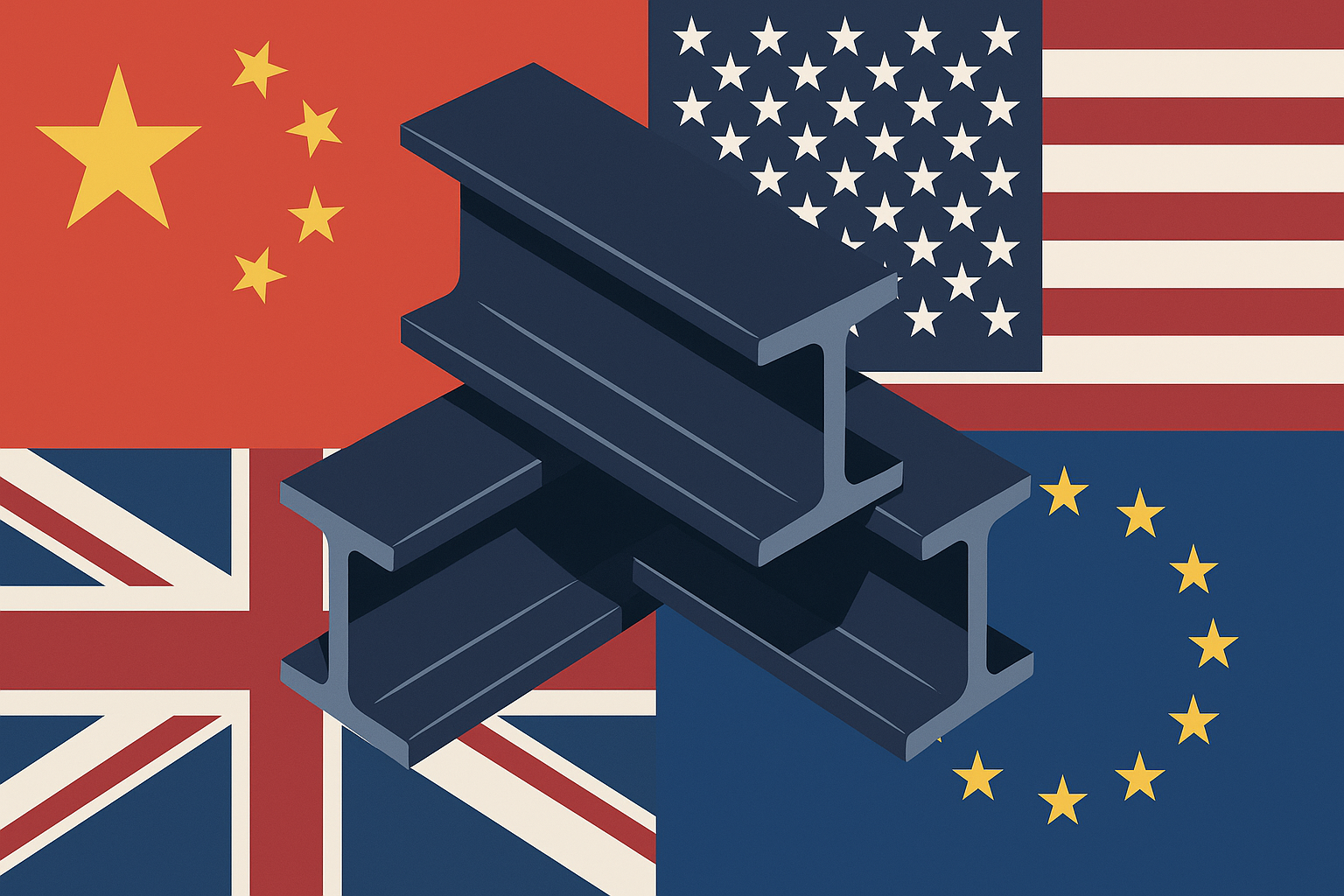The UK government is pursuing plans to form a three-way “steel alliance” with the United States and the European Union, aimed at protecting domestic industries from a growing global steel glut driven largely by Chinese overproduction, Trade Minister Sir Chris Bryant told the Financial Times.
Bryant said London was engaged in “continuous discussions” with both Washington and Brussels about creating a coordinated trade pact—similar in spirit to the 1950s European Coal and Steel Community—to defend against unfairly subsidised imports, particularly from China.
“We’re in continuous discussion about how we could make this happen — about whether there should be a three-way [alliance], a two-way, and if so, which two-way,” Bryant said.
While no formal proposal has yet been tabled, Bryant said that a UK-EU-US ‘steel club’ would be a logical response to global market imbalances that have forced Western nations to adopt high import tariffs to protect their domestic producers.
A Common Front Against Steel Overcapacity
The initiative follows moves by both the US and EU to introduce steep tariffs on imported steel. Earlier this month, Brussels announced plans for a 50% tariff on steel imports from July next year, while halving existing import quotas. The proposal mirrors US President Donald Trump’s decision to impose similar 50% tariffs under national security justifications.
The UK, which reached a bilateral deal last month with Washington for a 25% tariff rate, is seeking to align with both powers to prevent cheap Chinese steel from destabilising Western markets.
“The three [of us] have a shared perception that there is overcapacity in the world,” Bryant said. “We all need to have our own sovereign steel capacity for economic security reasons—for building tanks and all the rest of it.”
According to the OECD, global overcapacity reached 600 million tonnes in 2024 — nearly a quarter of total global production — and is expected to surge to 721 million tonnes by 2027, driven mainly by China’s one-billion-tonne annual output.
Talks with the EU and the US
Bryant said the UK is holding constructive talks with Brussels and with key EU members such as Germany, seeking preferential terms for British steel exporters once the EU’s new import regime begins in July 2026.
An EU official confirmed that Brussels was discussing quota allocations with trading partners and that the UK would receive a “preferential look” in negotiations.
Bryant expressed optimism that the UK would achieve a better deal than the general arrangement, either through larger quotas or exemptions for specific products.
“All of that might in the end be bypassed, of course, if we were able to create some kind of ‘ring of steel’ or a steel alliance,” he added. “It does feel remarkably like the 1950s — Europe talking about a steel deal.”
Building on Past Initiatives
The idea of a “global arrangement on steel and aluminium” was first discussed between the EU and the US in 2021 during the Biden administration, but those talks failed to produce an agreement.
A new trilateral alliance involving the UK could revive that effort, creating a common tariff structure for all imports from outside the group, while allowing free or reduced-tariff trade among members.
The proposal has drawn support from industry groups. Gareth Stace, Director-General of UK Steel, called the potential alliance a “breakthrough” in efforts to address global overcapacity.
“An alliance between like-minded countries would be a breakthrough in resolving the global overcapacity issue and excluding heavily subsidised steel from ravaging what is left of the steel industries in the developed world,” Stace said.
Germany and EU Show Support
Germany’s economics ministry also signaled openness to cooperation, saying it shared a “fundamental interest” with the UK in tackling overcapacity and ensuring fair competition. “Further discussions are planned to take place on this issue,” a ministry statement said.
Next Steps for the UK
The British government is preparing to unveil its own steel safeguard measures, as the current framework — which applies a 25% tariff on 14 steel categories exceeding quota limits — is set to expire in June 2026.
Bryant acknowledged a “degree of urgency” in finalising the UK’s new steel strategy. “Our plans will come soon,” he said, noting that aligning with Western partners was essential for protecting Britain’s industrial base and strategic autonomy.
If successful, a UK-EU-US steel alliance could mark a new era of transatlantic industrial cooperation, forming what officials describe as a “ring of steel” against global oversupply — and sending a clear signal to Beijing that unfair trade practices will face unified resistance.








